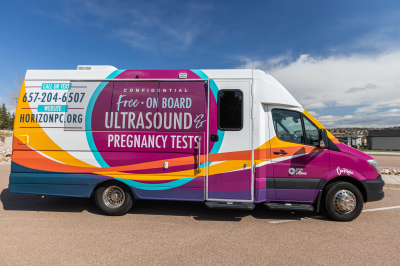How technology has changed views on abortion

There’s no denying how quickly technology has changed over the last 50 years. Smartphones have been developed, space tourism is a reality, and everything is instantaneous in the United States when we click on apps for online shopping or car rides.
If all of these things are possible, why is there little belief shared widely that technology has a drastic impact on how we view abortions, too?
As a board-certified obstetrician and gynecologic surgeon, I can tell you that the research available about abortion now far surpasses what was available when Roe v. Wade was ruled in 1973. For example, we now know that when an egg and sperm meet at the moment of conception, a brand new life's DNA is immediately formed; a unique life that has never existed before and will never exist again. We also have now collected 49 years of data on the significant risks of abortion to women, including breast cancer, chronic mental health disease, uterine damage, and risk of future preterm birth.
In 1973, technology was not capable of keeping a child alive outside of the womb at 21 or 22 weeks as it is today, and 28 weeks gestation was considered the youngest viable gestational age. The medical treatments women now have access to for their unborn babies are notably advanced. Life-saving fetal surgery can be performed as early as 19 weeks gestation. Furthermore, we can visualize a baby’s steady heartbeat via ultrasound just four weeks after conception!
We now know that at eight weeks of gestation, brain waves can be detected, at nine weeks the baby is kicking and swimming, and at 10 weeks every organ is in place and the baby can begin to hear. At weeks 11 and 12, teeth begin to form, fingernails develop, and the baby can turn his or her head and smile. At 13 weeks, babies start to feel pain and the baby can grasp objects in his or her hand and all organ systems are functioning! These are remarkable developments. Life begins at conception, and rapid, significant fetal development begins immediately thereafter with all of the aforementioned milestones occurring just in the first trimester. Many women who are considering abortion do not realize how developed their child is at the earliest stages of life.
I’m the National Medical Director and a board member for Save the Storks, a national nonprofit organization dedicated to equipping, educating, and training pregnancy resource centers and churches across the U.S. to empower women to choose life—the healthiest decision not only for their unborn babies but also for themselves. I have studied the research of the short- and long-term harmful effects of abortion, treated tens of thousands of female patients, and know that the overturn of Roe v. Wade is a huge win for the health and lives of women and children.
Women and children are vulnerable to the billion-dollar abortion industry and need laws protecting them, giving them the right to know about the dangers of any abortion procedure as well as the remarkable development of their unborn child starting from the moment of conception. Instead of pitting mothers against their unborn children, I want to see mothers empowered to choose the healthiest decision for themselves and their unborn babies: Life.
When women succeed in carrying their pregnancy, not only are they physically and emotionally protected from the harms of abortion, but they are allowed to bring a new life into the world to be parented by themselves or a family of their choosing in adoption. I have treated countless women who were empowered to choose life in an unplanned pregnancy situation and are forever dynamically grateful for the experience and support they received through a local pregnancy resource center.
Technology has also allowed us to innovate regarding how we serve and educate pregnant women. With the availability of Save the Stork buses, women have access to mobile pregnancy clinics and ultrasounds within miles of their homes. This gives women an opportunity to receive excellent care and compassionate support – all for free. Quality access to gold-standard healthcare can be available to women facing an unplanned pregnancy so they do not feel that the death of their child is their only option.
Americans are not pro-abortion. Repeated non-partisan national polls show that the majority of Americans are against abortion at any gestational age. A Marist poll conducted in 2021 revealed that 76% of Americans interviewed opposed abortion on demand and opted to limit abortion to the first three months of pregnancy. Now with our advancements in technology, educating the American public on the risks of abortion to women and the rapid fetal development beginning the moment of conception will help our nation to truly value women and children and end abortion.
While there is still work to be done in many states, the opportunity has come to finally end abortion in this country as it has already been stopped in the majority of countries around the world. America needs a change to begin again to value women and children, and the overturning of Roe v Wade helps propel us forward with that change.
Dr. Karysse Trandem is a board-certified obstetrician and gynecologic surgeon. She has completed distinguished research fellowships at both the National Institutes of Health in Washington, D.C. and the World Health Organization in Geneva, Switzerland during her residency at the University of Minnesota. Dr. Trandem is the national medical director and a board member for Save the Storks. She is also medical director and a physician at the Pregnancy Resource Center of Southwest Florida clinics, and an assistant professor of obstetrics and gynecology for the University of Central Florida, College of Medicine.



























